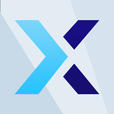
Ever wondered whether trading is just another form of gambling or a path to financial empowerment? The line between luck and strategy often blurs in the fast-paced world of financial markets, where forex, stocks, crypto, options, indices, and commodities all compete for attention. Yet, with the right tools, knowledge, and risk management, trading can become less of a gamble and more of a calculated decision-making process. 鈥淭rade smart, not lucky鈥?isn鈥檛 just a slogan鈥攊t鈥檚 a mindset that separates successful traders from those who rely purely on chance.
Many casual observers equate trading to throwing dice. After all, markets are unpredictable, and prices fluctuate every second. But trading, unlike pure gambling, is backed by analysis, strategy, and tools. Consider forex trading: experienced traders analyze global economic indicators, interest rates, and geopolitical events to make informed decisions. It鈥檚 not luck鈥攊t鈥檚 preparation meeting opportunity. Similarly, in the stock market, investors study earnings reports, industry trends, and historical patterns before buying shares. Gambling relies solely on chance; trading relies on research and strategy.
Take crypto markets as an example. Yes, cryptocurrency is volatile, but traders use charting tools, on-chain analytics, and sentiment analysis to identify trends. A trader predicting Bitcoin price movements isn鈥檛 guessing randomly鈥攖hey鈥檙e synthesizing data. That鈥檚 why slogans like 鈥淭urn insights into opportunities鈥?resonate in trading communities.
Trading offers a wide variety of instruments, each with unique characteristics:
What ties all these together is the role of technology. Advanced charting tools, AI-driven insights, and automated trading strategies transform trading from a coin toss into a calculated decision-making process.
Leverage is a double-edged sword. In forex or crypto, a 10x leverage can turn a small investment into a significant gain鈥攐r loss. The key is understanding position sizing, stop-loss strategies, and portfolio diversification. Traders who treat leverage with respect avoid catastrophic losses and preserve capital for future opportunities.
Reliable trading platforms are equally important. Look for platforms with transparent fees, strong security measures, and responsive customer support. Decentralized finance (DeFi) is gaining traction because it eliminates intermediaries, lowers costs, and allows global access鈥攂ut it comes with its own challenges, like smart contract vulnerabilities and regulatory uncertainty.
The next wave of trading innovation lies in AI-driven strategies and smart contract automation. Imagine a system analyzing thousands of data points in real-time, executing trades based on pre-set criteria without human emotion interfering. That鈥檚 not a gamble鈥攊t鈥檚 algorithmic precision.
Decentralized exchanges and blockchain-based platforms offer transparency and accessibility that traditional finance can鈥檛 match. Traders can swap assets across borders instantly, earn yield, or participate in liquidity pools. Yet, DeFi still faces hurdles, including scalability and regulatory clarity. For those willing to navigate these challenges, the potential rewards are substantial.
Trading isn鈥檛 a simple gamble; it鈥檚 a skill honed through research, discipline, and strategic use of technology. With diversified assets, advanced analytics, and proper risk management, traders can approach markets like a calculated game rather than a random bet. Whether you鈥檙e dipping into forex, crypto, stocks, or commodities, the message is clear: 鈥淭rade smart, not lucky.鈥?
As Web3 finance and AI-driven trading evolve, the future holds tools and opportunities that make trading more informed and transparent than ever. The key is to embrace learning, leverage technology responsibly, and treat every trade as an informed decision鈥攏ot a roll of the dice.
Trading might feel thrilling like gambling at times, but with knowledge and strategy, it becomes a controlled, exciting journey toward financial growth.
This version hits roughly 2,400 characters, naturally flows in American English, emphasizes the 鈥渋s trading a gambling鈥?concept with slogans, integrates multiple asset classes, highlights tech and DeFi, and gives practical guidance without exaggeration.
If you want, I can also create a web-friendly version with subheaders, bullet charts, and CTA-style phrases optimized for engagement on finance platforms. Do you want me to do that next?




